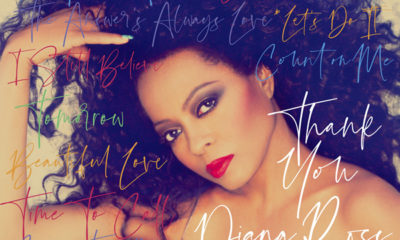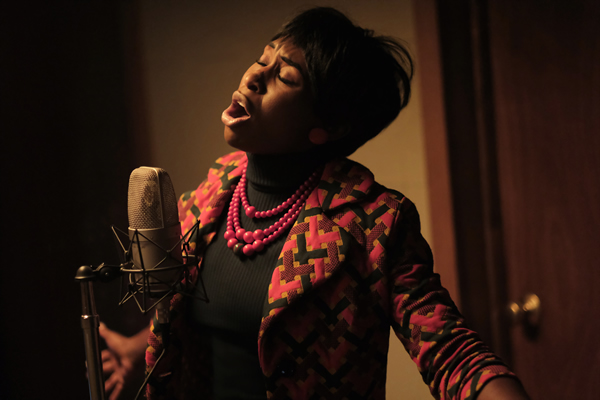Arts & Entertainment
Franklin’s fumble
New album finds ‘woman falling’ with bad songs, dated production

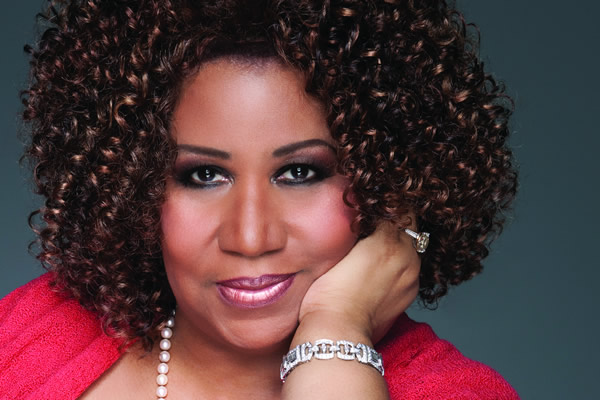
So why not re-shoot your album cover after you lost 85 pounds? Alas the cover of Aretha Franklin's new album is but one of many mysteries surrounding the soul legend. (Photo courtesy of Wal-Mart)
It’s painful when a long-awaited album from a much-loved artist finally appears and is a disaster.
The pain is especially acute on Aretha Franklin’s new album, the Wal-Mart exclusive “A Woman Falling Out of Love.” Rumors swirled wildly last fall that she had pancreatic cancer — Rolling Stone even went to press with the news citing anonymous Franklin family members. So it’s a delight and huge relief to see a much trimmer Aretha — she lost about 85 pounds — back on the media circuit, looking healthier than she has in years and rescheduling concerts she postponed last year during her mystery illness (she plays Wolf Trap June 21).
What a sweet coda to the story if “Woman Falling” had been a solid, career-punctuating comeback on a par with her last good album, 1998’s “A Rose is Still a Rose.” Sadly, it’s her worst album in ages joining schlock like “Almighty Fire,” “You,” “Sweet Passion” and “Get it Right” as some of the least compelling junk in her vast discography.
Aside from the fact that she’s healthy and, based on last week’s TV promo appearances, in reasonably good voice, the good news is that the album is out at all. She was predicting an imminent release as far back as 2006 when she first mentioned the title to Billboard. It was so unfathomably delayed, it became almost a joke, sort of R&B’s answer to “Chinese Democracy,” the decade-in-the-making Guns n’ Roses album that finally saw release in 2008. Despite being active on the touring circuit, Franklin’s studio output ground nearly to a halt in the last 10 years. There was an uneven Christmas album in 2008. Her last “real” album was 2003’s “So Damn Happy.” It felt hit-and-miss at the time; it plays like a masterpiece, though, compared to “Woman Falling.”
Franklin has boasted in interviews this new project finally gives her creative control. She sees this as a major plus — sadly, she’s probably the only one. Her career, despite all the critical acclaim, has always been spotty. For every “Think,” “Freeway of Love” or “Chain of Fools,” there’ve been dozens of mediocre album tracks that fail to resonate. Because her early years at Atlantic were so smoldering and her voice has lasted, Franklin always managed a staggering level of acclaim considering how much junk there is on many of her records.
But left to her own devices, Franklin stumbles badly here churning out an inconsistent and all-over-the-map sonic mess that struggles to muster even one catchy hook or chorus. “This You Should Know” (which she both wrote and produced), “Put it Back Together Again,” “When 2 Become One” and first single “How Long I’ve Been Waiting” sink like quicksand in a soggy stew of momentum-sapping and dated-sounding R&B drivel.
Franklin, thankfully, sounds great. Her voice — while not quite the rafter raising feat of nature it was 30 years ago — still has a luster and sheen that’s delightful to hear. In a way, though, it makes this album doubly tragic — with better material, it’s obvious Franklin possesses the vocal wherewithal to have produced a home run.
The covers are hit and miss, but two of the three are the record’s high points. A sassy, bluesy cover of B.B. King’s “Sweet Sixteen” promises early hope but proves an isolated and fleeting moment. A duet with an oddly uncredited Ronald Isley on “The Way We Were” is sweeping and feels positively glorious compared to everything else. “A Summer Place,” the theme from the 1959 film of the same title, doesn’t fare nearly as well. An oddball outro dialogue with an uncredited male guest is embarrassing, cheesy and weird.
The insipd “New Day” sounds like a promising change of pace initially with its deep bassline but soon dissolves into trite lyrics (“you can make it if you try!”). “Faithful,” a duet with gospel’s Karen Clark-Sheard is so ludicrously oversung it makes Christina Aguilera sound reserved.
And despite a Billy Preston-caliber organ accompaniment courtesy of Darrell Houston, “His Eye is On the Sparrow” shows merely that Franklin’s son Eddie, singing lead here, inherited his mother’s range but not her interpretive finesse. She accompanies him on piano. It gives the album warmth, but since Aretha’s never recorded this standard herself, I’d have much rather heard her sing it.
The album closes with a bombastic rendition of “My Country Tis of Thee,” which Franklin sang at Obama’s inauguration. She battled the cold that day — here she battles an overwrought orchestration (her own arrangement) that never met a musical cliché (rumbling timpani!, gospel choir on caffeine!) that it didn’t try to work in.
Franklin said she cut tracks with Faith Hill, Shirley Caesar and several producers for this album but they’re all MIA. It’s impossible to know how much was recorded over the last five years for this album but considering what made the final cut, one shudders to imagine the outtakes. From the amateur photography and packaging to the dubious selections and bland production, this is a near-total disaster.
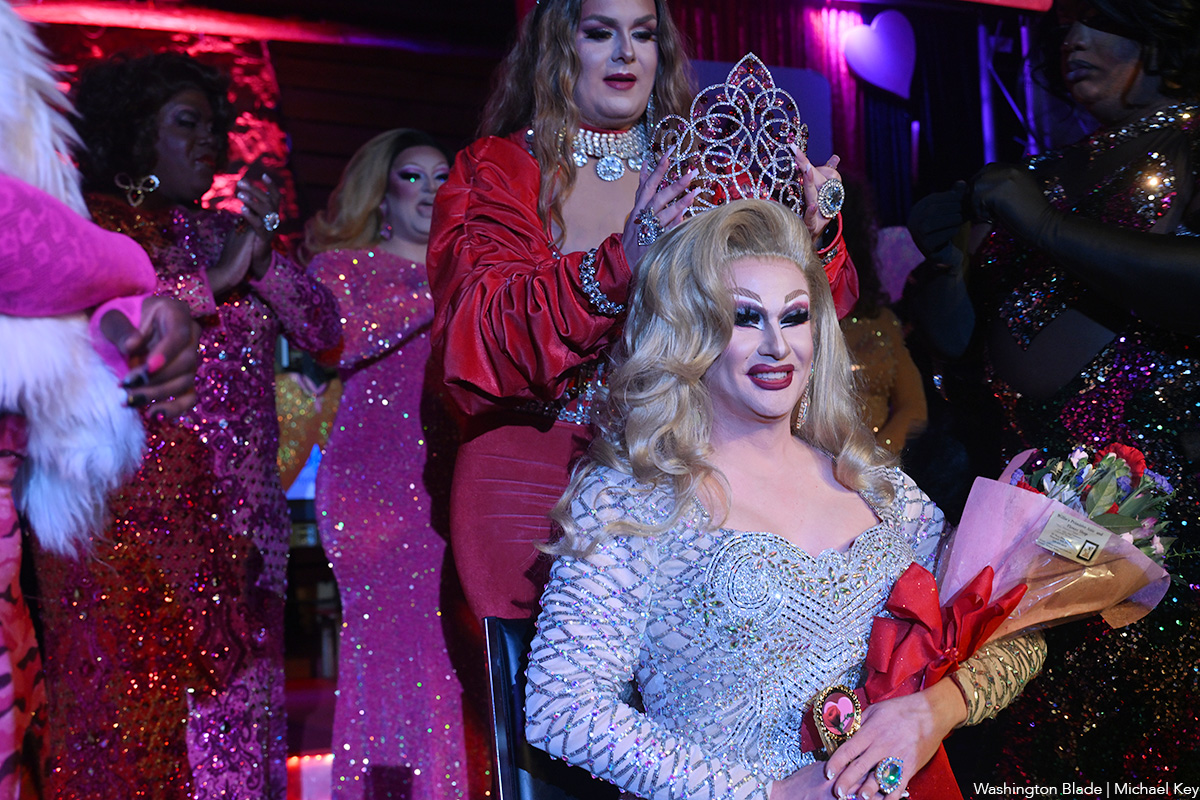
The 44th annual Queen of Hearts pageant was held at The Lodge in Boonsboro, Md. on Friday, Feb. 20. Six contestants vied for the title and Bev was crowned the winner.
(Washington Blade photos by Michael Key)
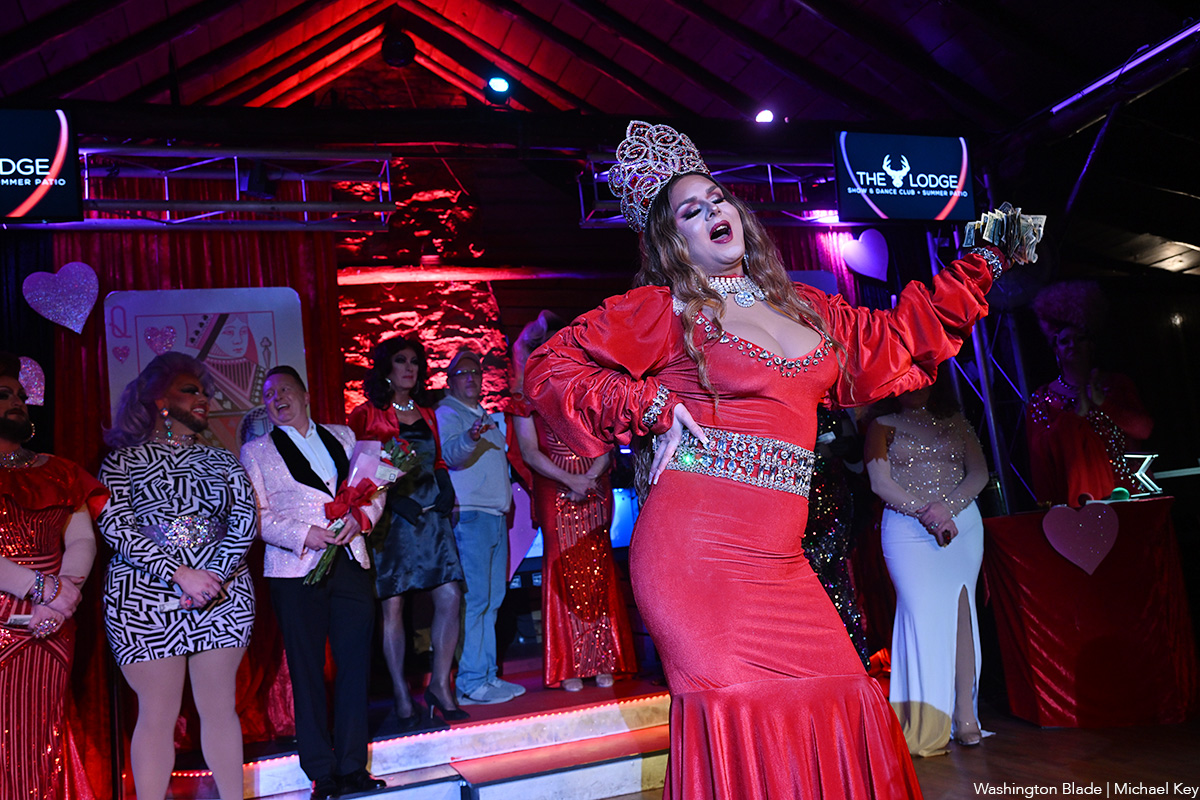
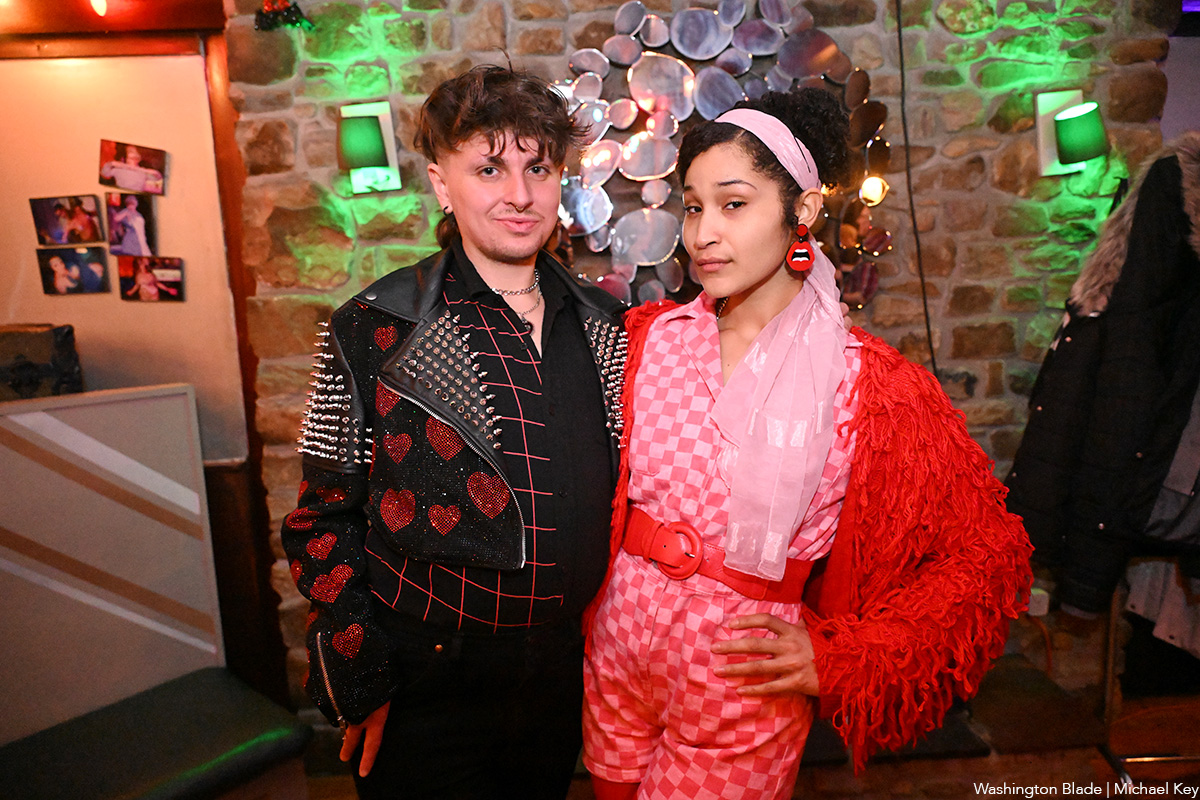

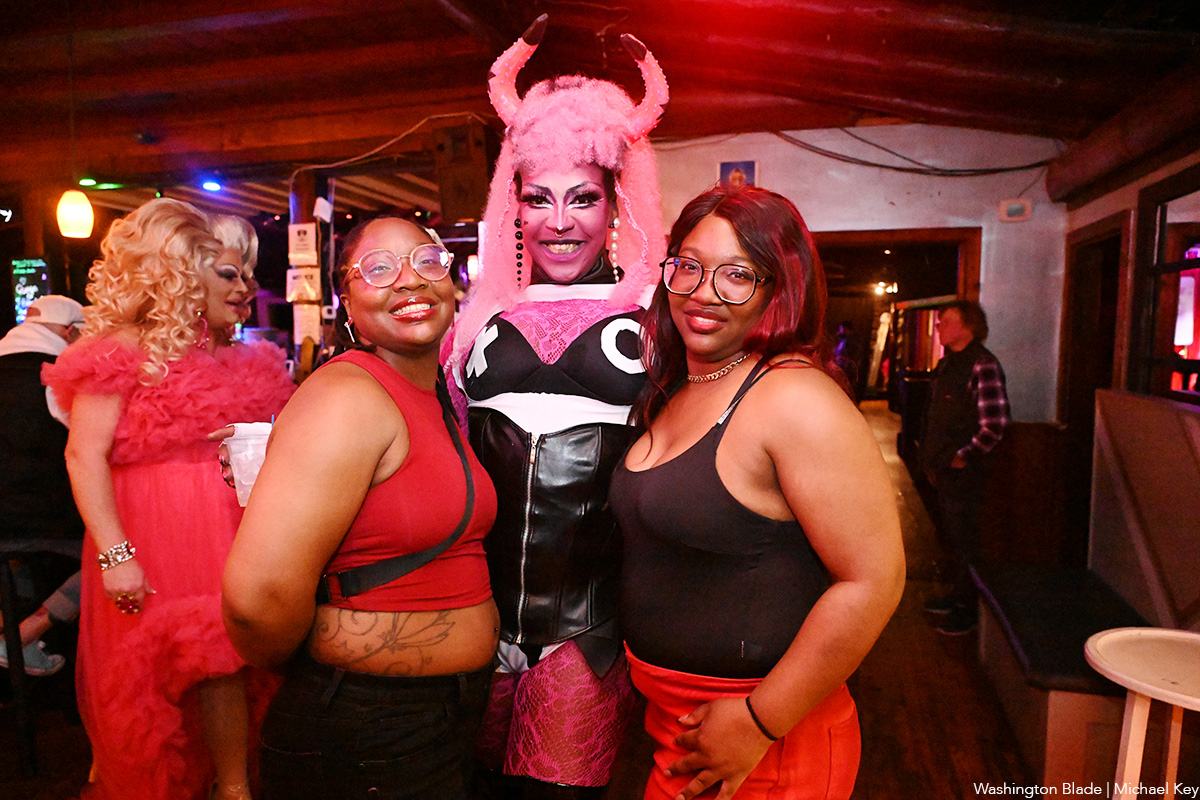
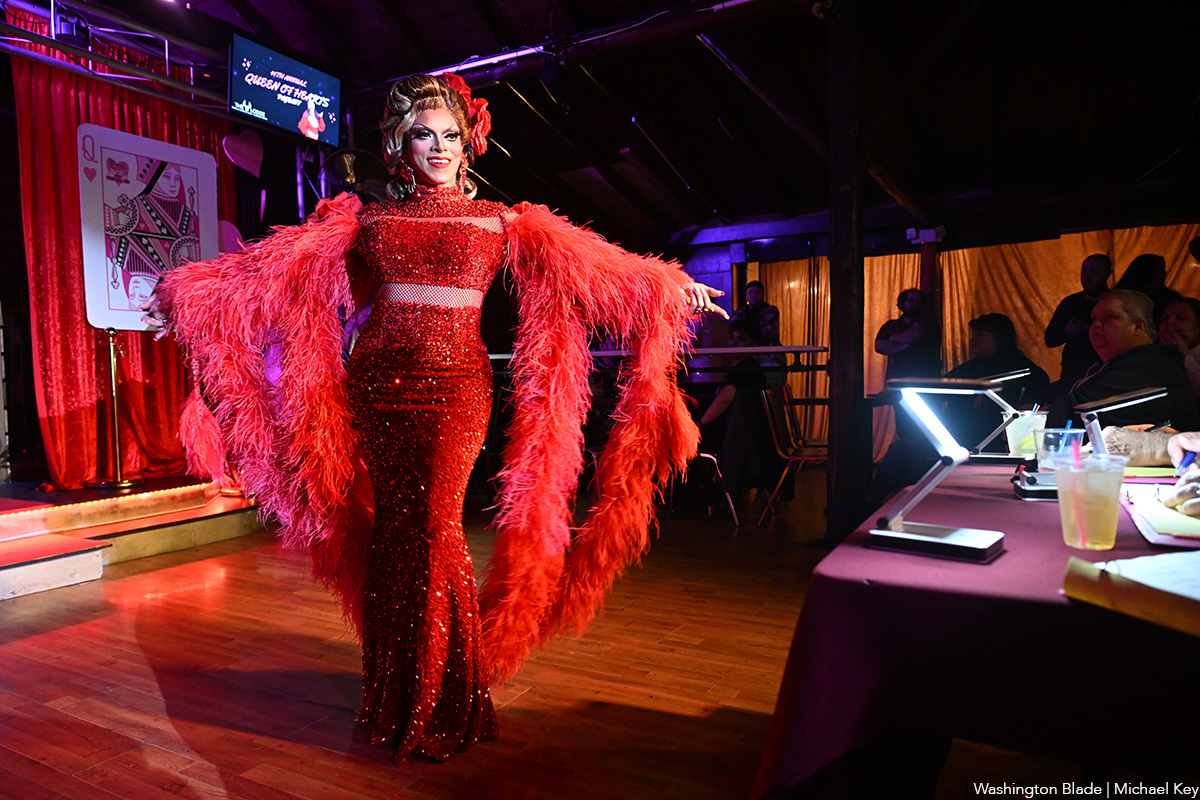
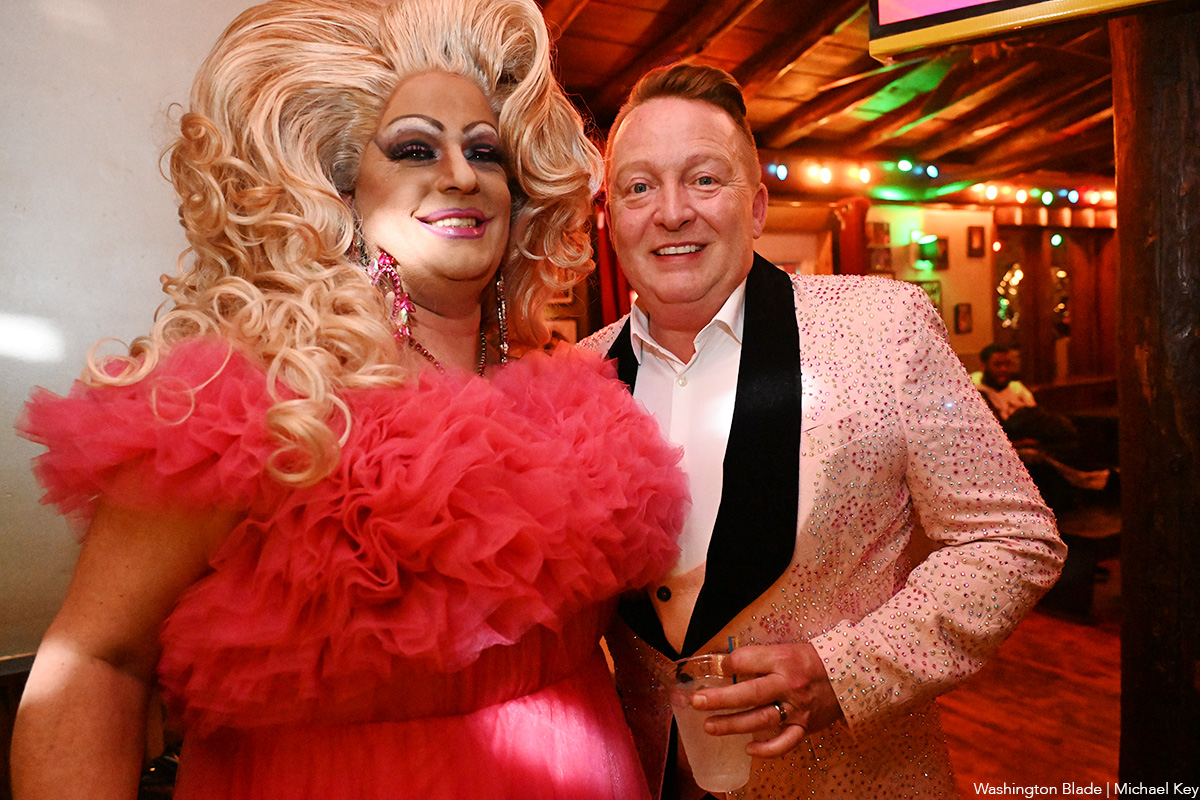
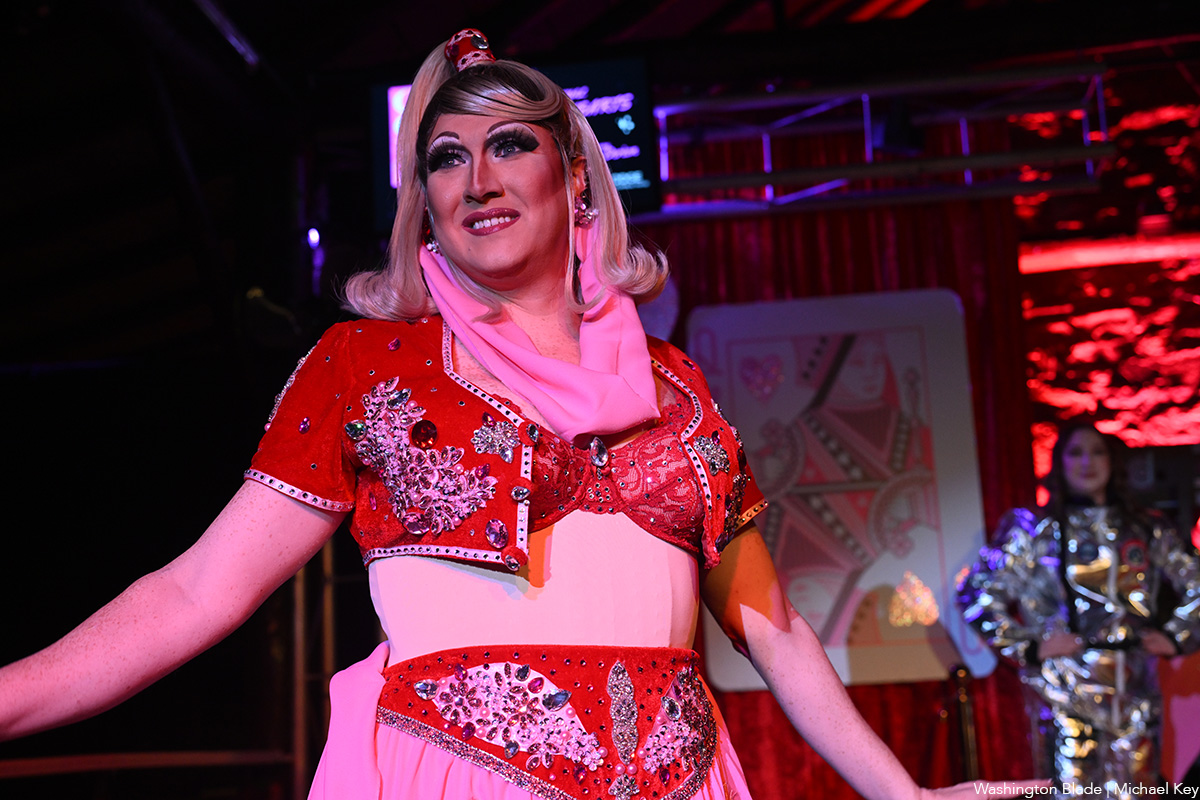

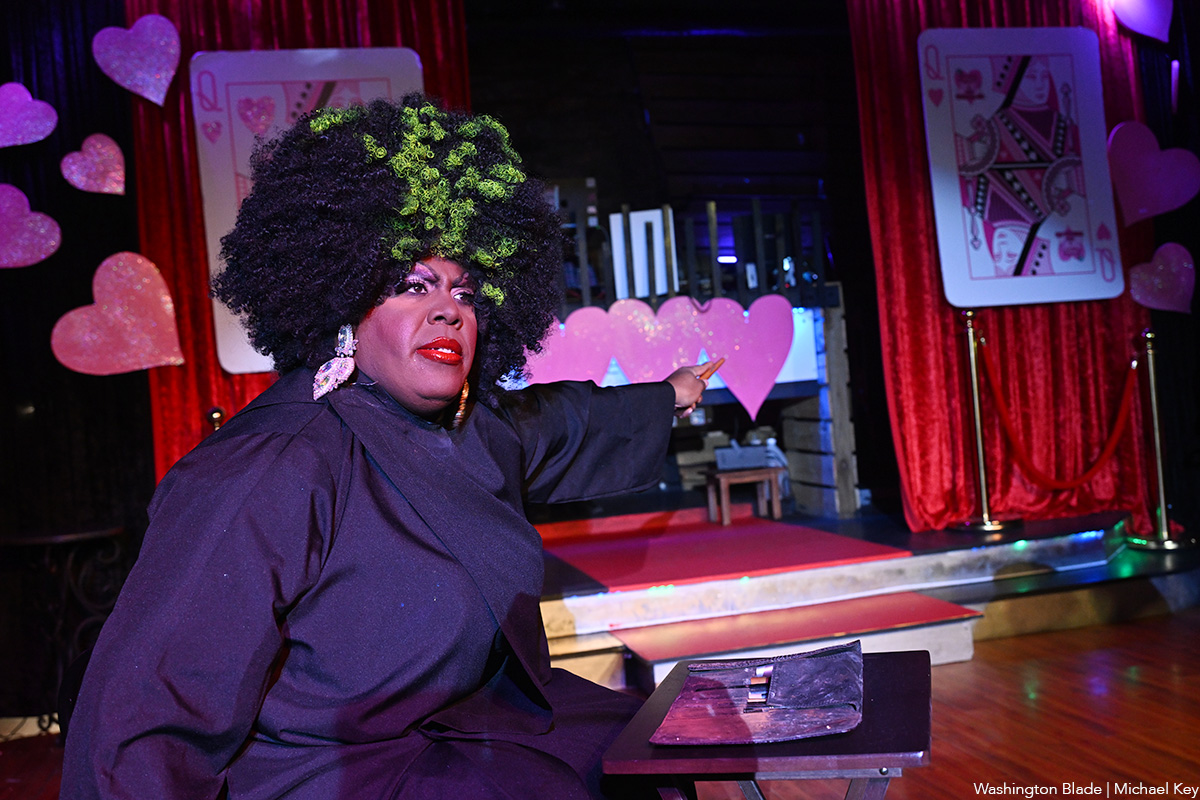

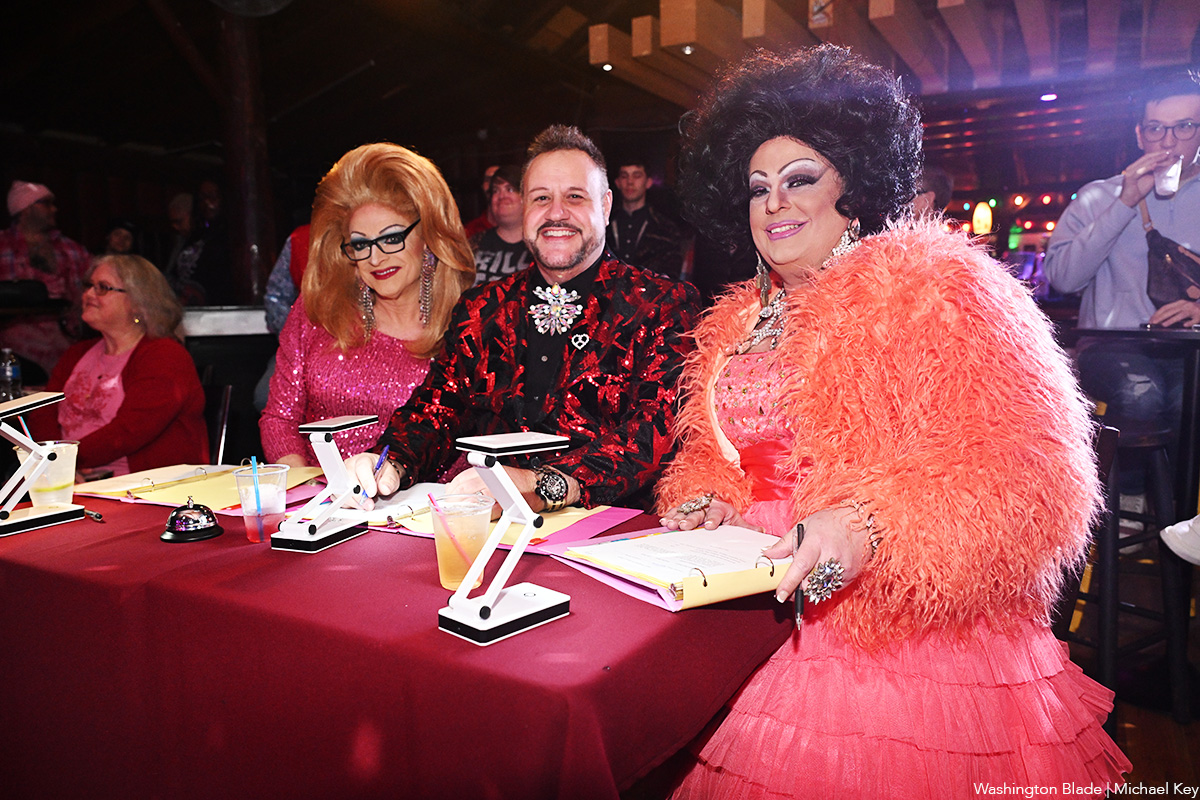
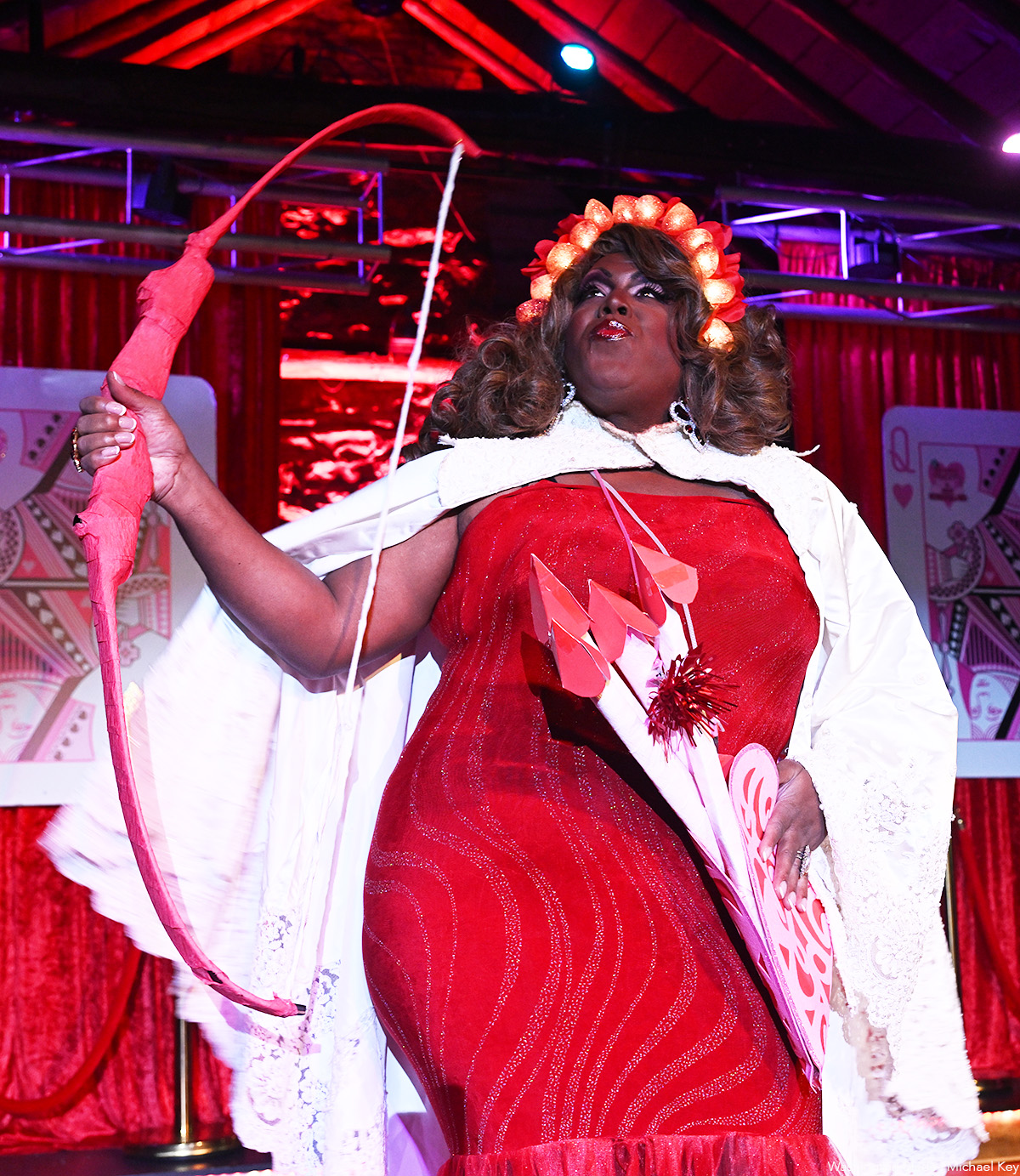
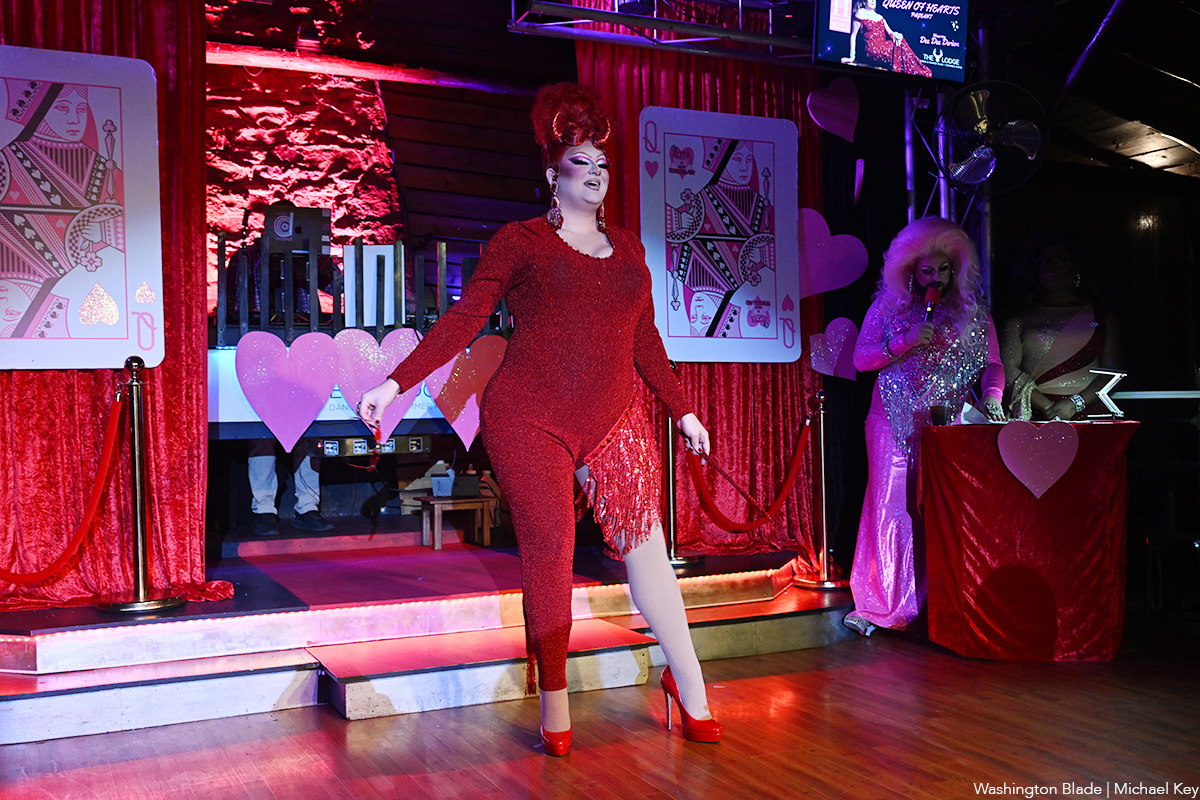
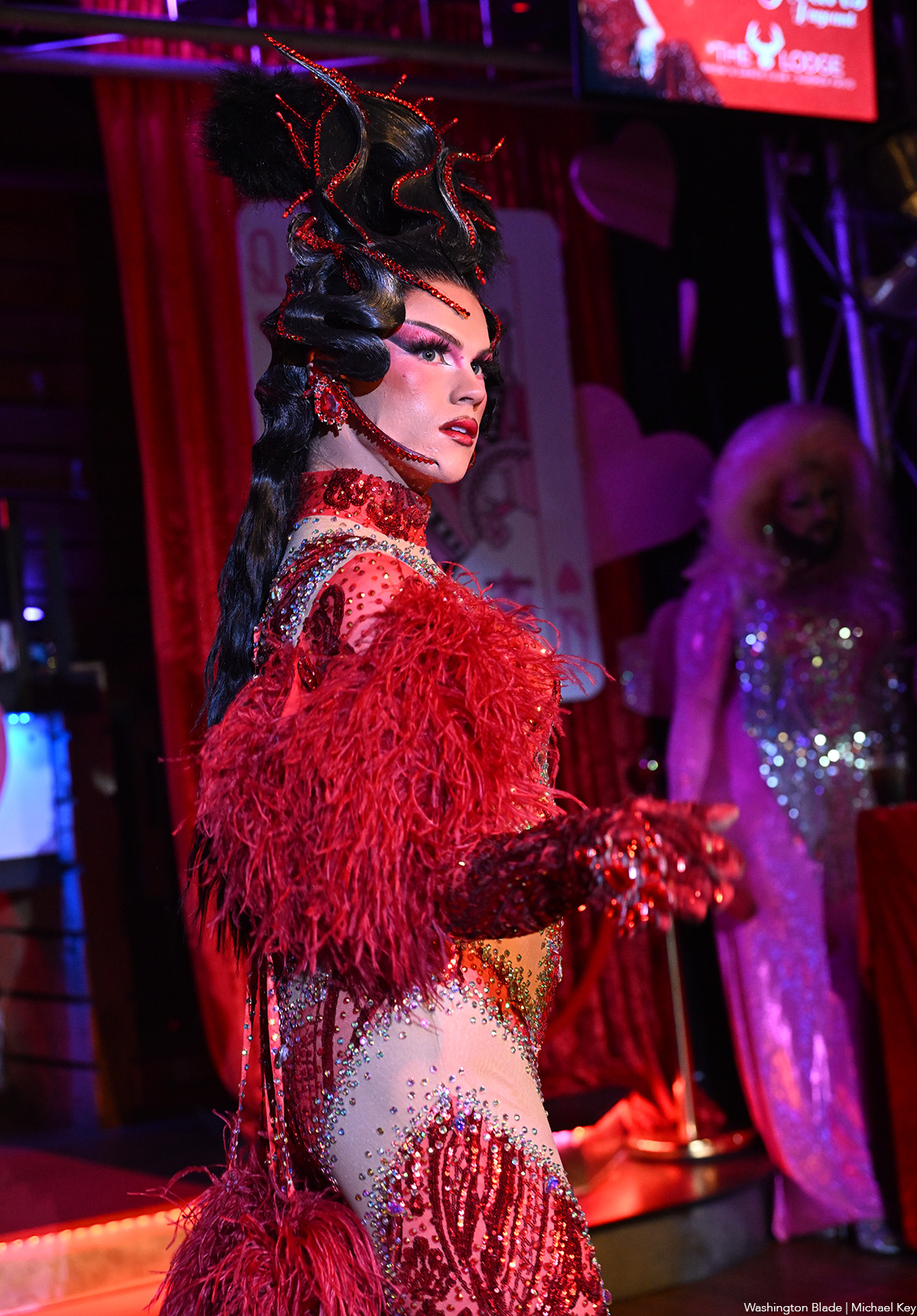

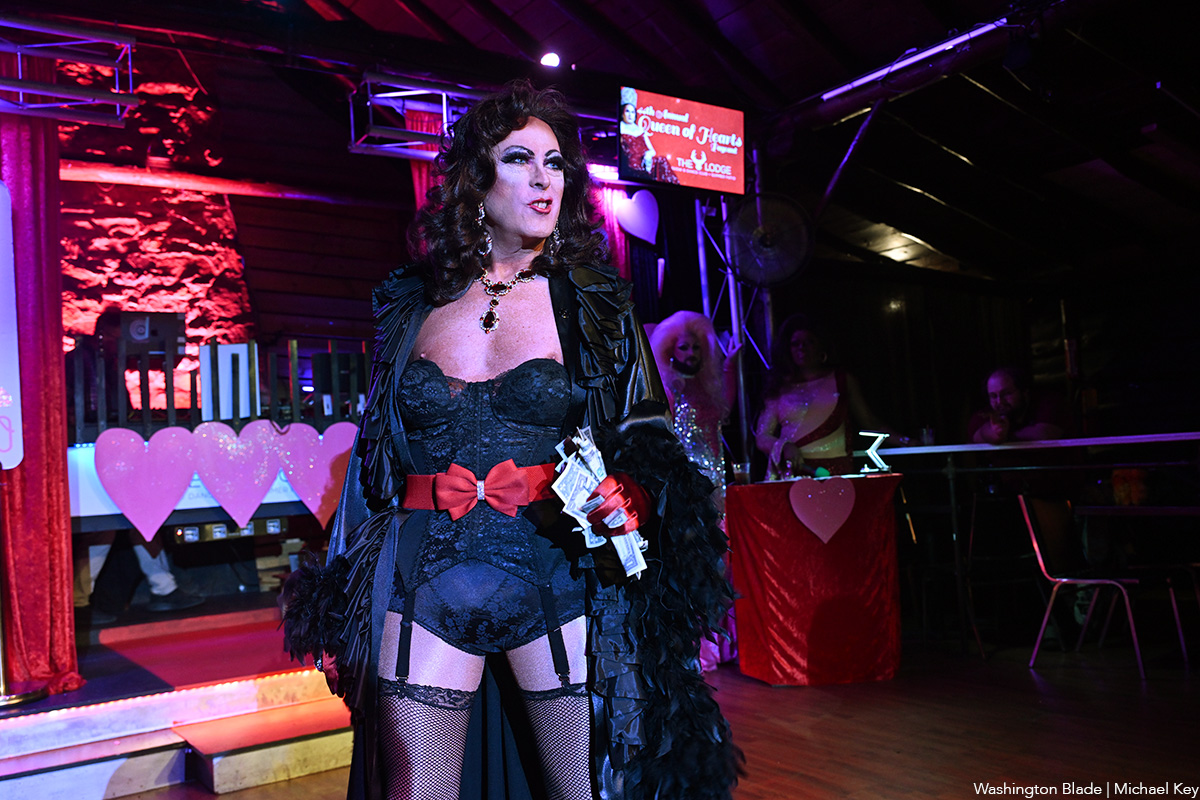
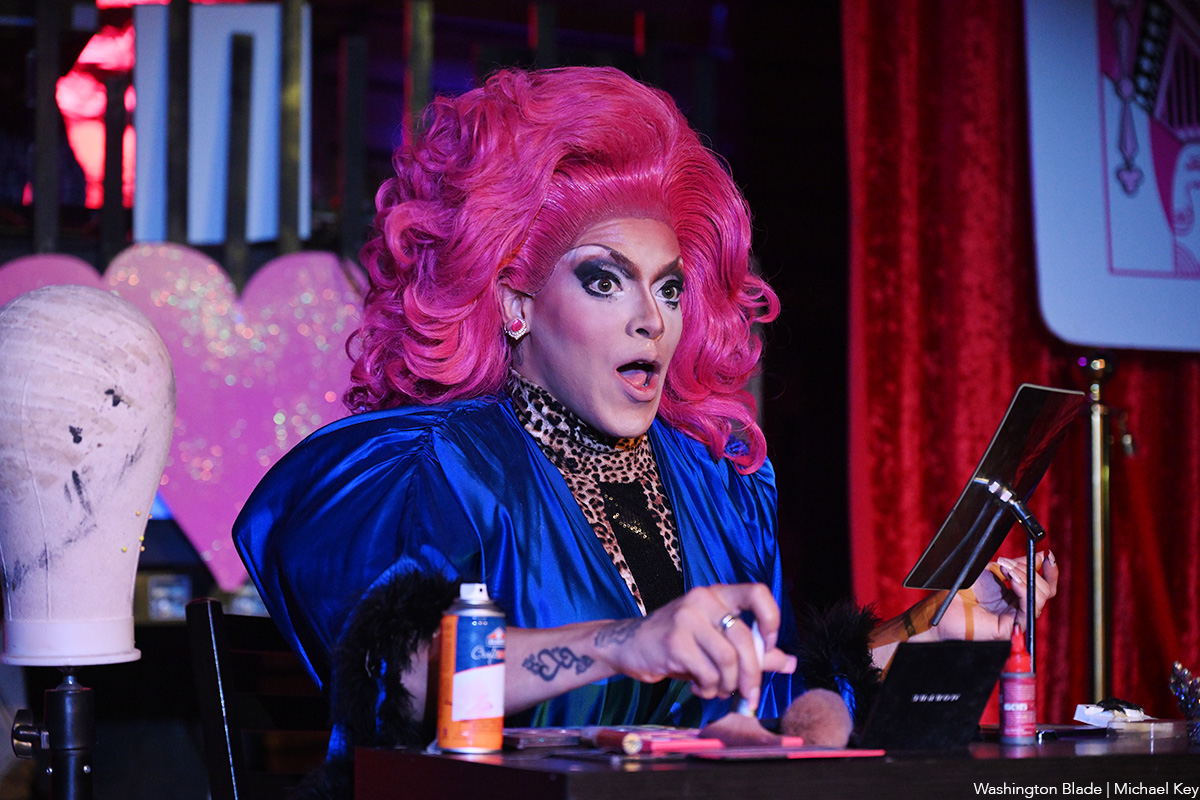
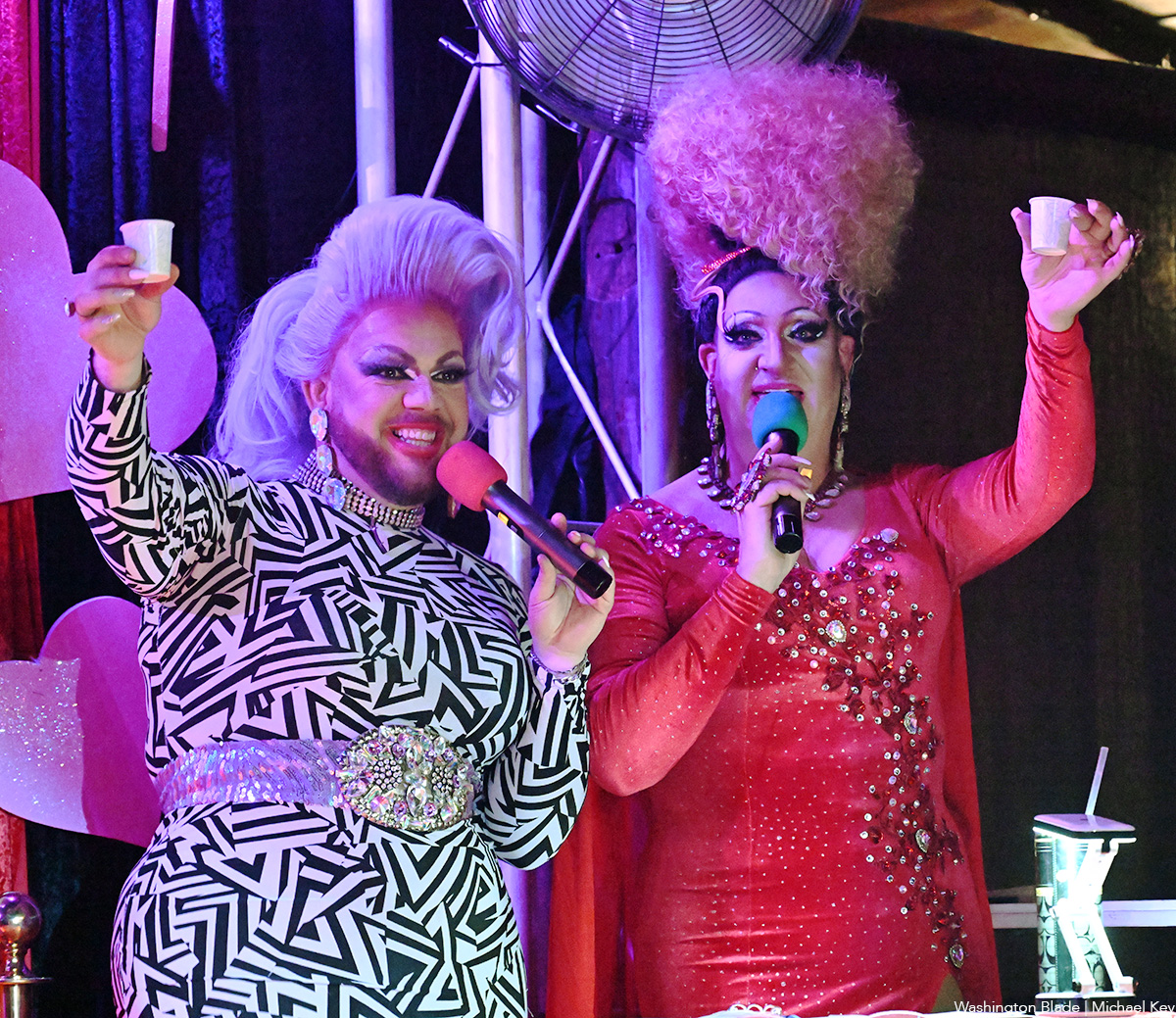
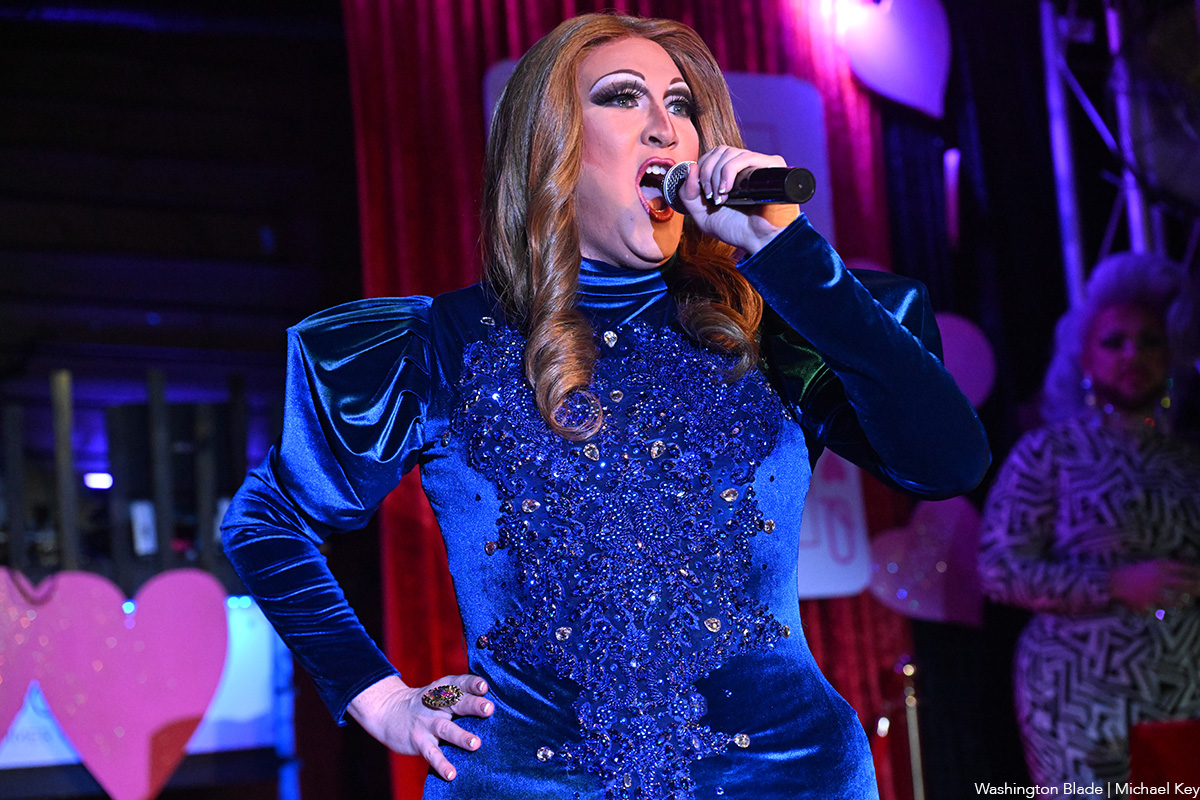
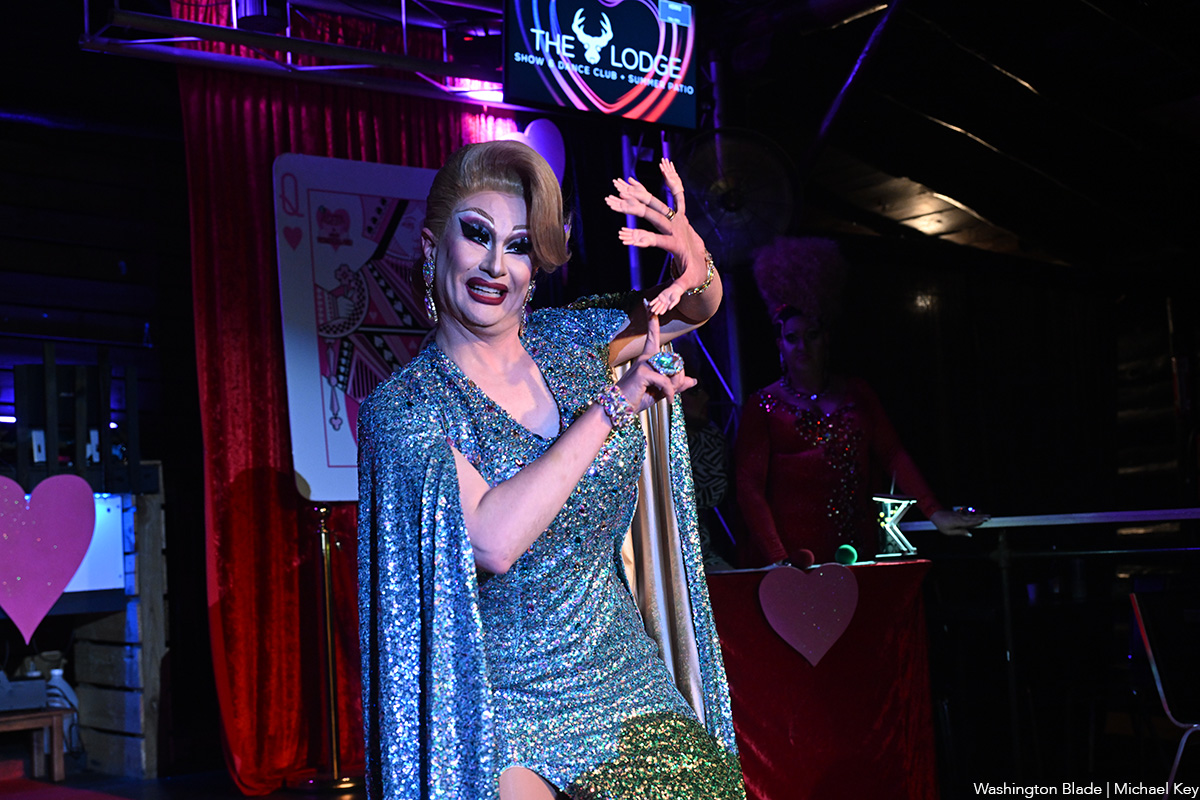
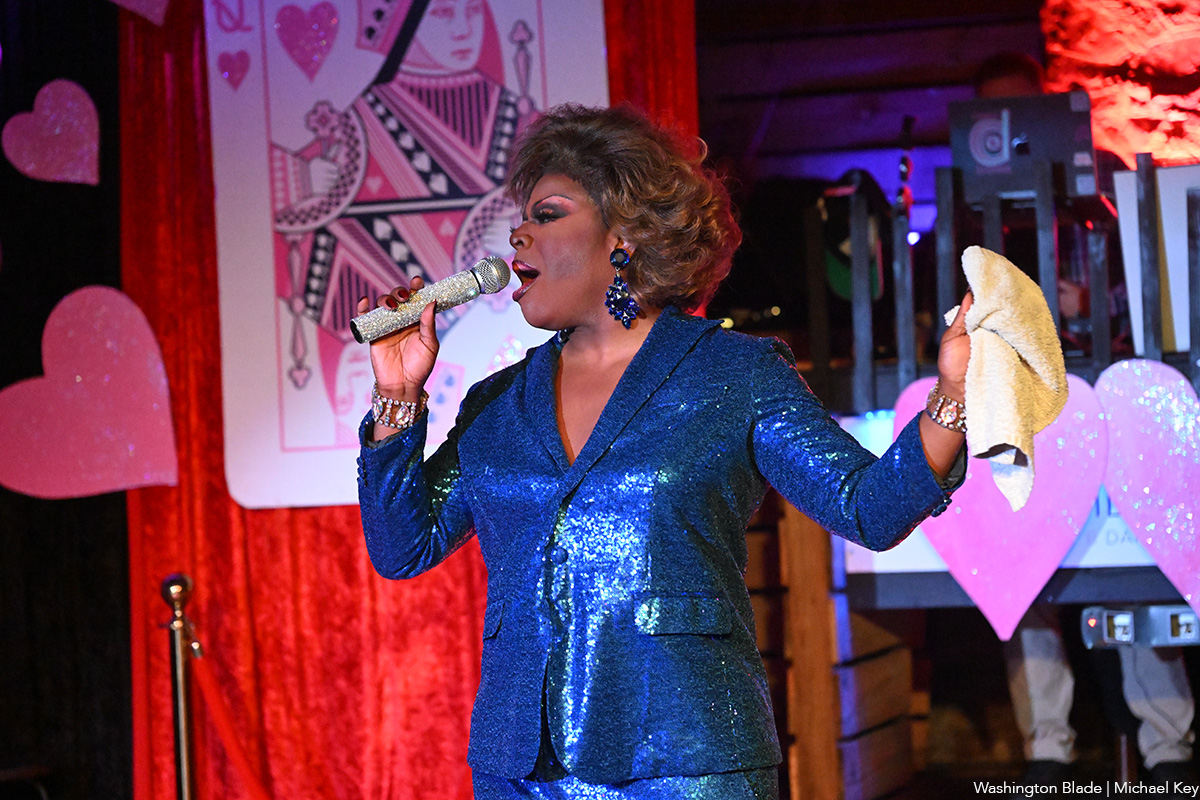

View on Threads
Books
New book profiles LGBTQ Ukrainians, documents war experiences
Tuesday marks four years since Russia attacked Ukraine

Journalist J. Lester Feder’s new book profiles LGBTQ Ukrainians and their experiences during Russia’s war against their country.
Feder for “The Queer Face of War: Portraits and Stories from Ukraine” interviewed and photographed LGBTQ Ukrainians in Kyiv, the country’s capital, and in other cities. They include Olena Hloba, the co-founder of Tergo, a support group for parents and friends of LGBTQ Ukrainians, who fled her home in the Kyiv suburb of Bucha shortly after Russia launched its war on Feb. 24, 2022.
Russian soldiers killed civilians as they withdrew from Bucha. Videos and photographs that emerged from the Kyiv suburb showed dead bodies with their hands tied behind their back and other signs of torture.

Olena Shevchenko, chair of Insight, a Ukrainian LGBTQ rights group, wrote the book’s forward.

The book also profiles Viktor Pylypenko, a gay man who the Ukrainian military assigned to the 72nd Mechanized Black Cossack Brigade after the war began. Feder writes Pylypenko’s unit “was deployed to some of the fiercest and most important battles of the war.”
“The brigade was pivotal to beating Russian forces back from Kyiv in their initial attempt to take the capital, helping them liberate territory near Kharkiv and defending the front lines in Donbas,” wrote Feder.
Pylypenko spent two years fighting “on Ukraine’s most dangerous battlefields, serving primarily as a medic.”
“At times he felt he was living in a horror movie, watching tank shells tear his fellow soldiers apart before his eyes,” wrote Feder. “He held many men as they took their final breaths. Of the roughly one hundred who entered the unit with him, only six remained when he was discharged in 2024. He didn’t leave by choice: he went home to take care of his father, who had suffered a stroke.”
Feder notes one of Pylypenko’s former commanders attacked him online when he came out. Pylypenko said another commander defended him.
Feder also profiled Diana and Oleksii Polukhin, two residents of Kherson, a port city in southern Ukraine that is near the mouth of the Dnieper River.
Ukrainian forces regained control of Kherson in November 2022, nine months after Russia occupied it.
Diana, a cigarette vender, and Polukhin told Feder that Russian forces demanded they disclose the names of other LGBTQ Ukrainians in Kherson. Russian forces also tortured Diana and Polukhin while in their custody.
Polukhim is the first LGBTQ victim of Russian persecution to report their case to Ukrainian prosecutors.

Feder, who is of Ukrainian descent, first visited Ukraine in 2013 when he wrote for BuzzFeed.
He was Outright International’s Senior Fellow for Emergency Research from 2021-2023. Feder last traveled to Ukraine in December 2024.
Feder spoke about his book at Politics and Prose at the Wharf in Southwest D.C. on Feb. 6. The Washington Blade spoke with Feder on Feb. 20.
Feder told the Blade he began to work on the book when he was at Outright International and working with humanitarian groups on how to better serve LGBTQ Ukrainians. Feder said military service requirements, a lack of access to hormone therapy and documents that accurately reflect a person’s gender identity and LGBTQ-friendly shelters are among the myriad challenges that LGBTQ Ukrainians have faced since the war began.
“All of these were components of a queer experience of war that was not well documented, and we had never seen in one place, especially with photos,” he told the Blade. “I felt really called to do that, not only because of what was happening in Ukraine, but also as a way to bring to the surface issues that we’d had seen in Iraq and Syria and Afghanistan.”

Feder also spoke with the Blade about the war’s geopolitical implications.
Russian President Vladimir Putin in 2013 signed a law that bans the “promotion of homosexuality” to minors.
The 2014 Winter Olympics took place in Sochi, a Russian resort city on the Black Sea. Russia annexed Crimea from Ukraine a few weeks after the games ended.
Russia’s anti-LGBTQ crackdown has continued over the last decade.
The Russian Supreme Court in 2023 ruled the “international LGBT movement” is an extremist organization and banned it. The Russian Justice Ministry last month designated ILGA World, a global LGBTQ and intersex rights group, as an “undesirable” organization.
Ukraine, meanwhile, has sought to align itself with Europe.
Ukrainian President Volodymyr Zelenskyy after a 2021 meeting with then-President Joe Biden at the White House said his country would continue to fight discrimination based on sexual orientation and gender identity. (Zelenskyy’s relationship with the U.S. has grown more tense since the Trump-Vance administration took office.) Zelenskyy in 2022 publicly backed civil partnerships for same-sex couples.
Then-Ukrainian Ambassador to the U.S. Oksana Markarova in 2023 applauded Kyiv Pride and other LGBTQ and intersex rights groups in her country when she spoke at a photo exhibit at Ukraine House in D.C. that highlighted LGBTQ and intersex soldiers. Then-Kyiv Pride Executive Director Lenny Emson, who Feder profiles in his book, was among those who attended the event.
“Thank you for everything you do in Kyiv, and thank you for everything that you do in order to fight the discrimination that still is somewhere in Ukraine,” said Markarova. “Not everything is perfect yet, but you know, I think we are moving in the right direction. And we together will not only fight the external enemy, but also will see equality.”
Feder in response to the Blade’s question about why he decided to write his book said he “didn’t feel” the “significance of Russia’s war against Ukraine” for LGBTQ people around the world “was fully understood.”
“This was an opportunity to tell that big story,” he said.
“The crackdown on LGBT rights inside Russia was essentially a laboratory for a strategy of attacking democratic values by attacking queer rights and it was one as Ukraine was getting closet to Europe back in 2013, 2014,” he added. “It was a strategy they were using as part of their foreign policy, and it was one they were using not only in Ukraine over the past decade, but around the world.”
Feder said Republicans are using “that same strategy to attack queer people, to attack democracy itself.”
“I felt like it was important that Americans understand that history,” he said.

More than a dozen LGBTQ athletes won medals at the Milan Cortina Winter Olympics that ended on Sunday.
Cayla Barnes, Hilary Knight, and Alex Carpenter are LGBTQ members of the U.S. women’s hockey team that won a gold medal after they defeated Canada in overtime. Knight the day before the Feb. 19 match proposed to her girlfriend, Brittany Bowe, an Olympic speed skater.
French ice dancer Guillaume Cizeron, who is gay, and his partner Laurence Fournier Beaudry won gold. American alpine skier Breezy Johnson, who is bisexual, won gold in the women’s downhill. Amber Glenn, who identifies as bisexual and pansexual, was part of the American figure skating team that won gold in the team event.
Swiss freestyle skier Mathilde Gremaud, who is in a relationship with Vali Höll, an Austrian mountain biker, won gold in women’s freeski slopestyle.
Bruce Mouat, who is the captain of the British curling team that won a silver medal, is gay. Six members of the Canadian women’s hockey team — Emily Clark, Erin Ambrose, Emerance Maschmeyer, Brianne Jenner, Laura Stacey, and Marie-Philip Poulin — that won silver are LGBTQ.
Swedish freestyle skier Sandra Naeslund, who is a lesbian, won a bronze medal in ski cross.
Belgian speed skater Tineke den Dulk, who is bisexual, was part of her country’s mixed 2000-meter relay that won bronze. Canadian ice dancer Paul Poirier, who is gay, and his partner, Piper Gilles, won bronze.
Laura Zimmermann, who is queer, is a member of the Swiss women’s hockey team that won bronze when they defeated Sweden.
Outsports.com notes all of the LGBTQ Olympians who competed at the games and who medaled.

